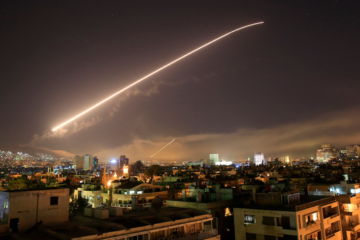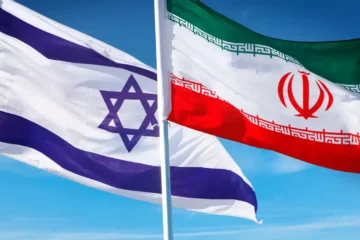The European Order: Can the EU remain intact?

Lahore, 9th June: Europe is the most fragmented continent on Earth. Throughout history, it has transformed from being a home to Empires to becoming a Union of nation-states.
In the last few centuries, the region witnessed total wars followed by attempts for peace. Moreover, it has also experienced the rise of leaders like Napoleon and Hitler, and revolutions that uprooted aristocracy and shaped up the contemporary world.
However, the future of Europe is becoming skeptical. The Europe of today professed as being united and integrated, is facing a myriad of challenges in terms of administrative, financial and foreign policy roles.
A historic analysis of Europe is indeed a roller coaster ride. After the fall of the Roman Empire, the continent plunged into the Dark Ages, culminating in the Thirty Years War.
However, this crisis became a blessing in disguise as the conference at Westphalia in 1648 became the birthplace of the concept of state sovereignty and nationhood.
It was this Treaty that rolled out a sustainable peace plan for various communities of Europe, linking power with legitimacy for the first time in history. A balance of power was created to prevent incessant wars and establish enduring peace.
The operation of the Treaty of Westphalia was quite prudent; balancing the power axis and preventing hegemony. Nonetheless, the French revolution and the subsequent rise of Napoleon in France underscored the weaknesses of Westphalian design.
A quick glance dictates that leaders of Europe have historically failed at reaching a sustainable peace plan. From Westphalia to the Congress of Vienna, all efforts were made to link legitimacy with power.
However, over time, power had diluted legitimacy as either France or Germany switched places to dominate their neighbors.
Notwithstanding this recurring chain of events, the end of World War II was an unprecedented event. Europe after the Second World War was devastated. France, despite winning the war, was razed to the ground.
Fragmented Germany was expecting sanctions stringent than those of World War I. It was only because of the financial and administrative acumen provided by the US that Europe became a well-governed, economically sound, and politically democratic society.
The US Marshall Plan of 1948 provided financial security to war-torn Europe. Moreover, as an attempt to contain the Soviets, the US became a nuclear protector of Europe in case of any misadventure by the Soviets.
This symbiotic relationship ensured democratic practices in Europe and the implementation of liberal economic policies, culminating in 2004 with the establishment of a common rule in Europe.
European Union was formed as a body to integrate Europe through democratic procedures and principles. It introduced a uniform currency and foreign engagement process. The EU integrated 28 nation-states into the Union.
Germany, France and England, agreed on giving up their individual liberties to ensure collective peace through legitimacy in Europe. However, after more than a decade since the EU’s formation, the future of the Union seems skeptical.
Today, European Union is facing challenges on various fronts. Brexit, a seemingly unreal concept at first has been materialized. Britain has pulled itself out of the Union, diluting its efficacy and increasing skepticism over its validity.
Furthermore, the EU is also struggling in maintaining equity pertaining to financial uniformity which is boasted as an EU asset. Countries like Hungary have become vocal over the stepchild treatment they face in terms of disproportionate economic benefits and growth.
Forces of nationalism and populism are on the rise in various EU countries, fueled by the impetus provided by Brexit. Apart from this, the foreign policy of the EU embraces universal ideals without means to impose them.
The response by EU members in terms of helping their neighbor members amidst the severe COVID-19 wave exposed and shattered the self-proclaimed slogans of unity, free travel, and togetherness. Various countries like Spain, Italy and France closed their borders to keep the contagion at the bay.
Apart from this, the globally shifting power axis has direct implications for the EU. Gone are the days when the US was a sole guardian of EU states, harboring them behind its nuclear deterrents and spreading its liberal values on the Western side of the continent.
Today, China is rising and is expected to grab center stage. Its international economic engagement projects like Belt and Road Initiative and its proximity to Europe have made it an ideal contender to pull EU states from US orbit into its own.
Moreover, as a result of economic devastation brought by the COVID-19 in the EU and the subsequent protectionist and nationalist stance taken by the US at the international level, the EU states are also showing a proclivity to stride towards China for economic recovery.
It is highly likely that in the near future, EU states will gravitate towards the superpower of their choice, fragmenting Europe once again. Such a situation could be detrimental for the contemporary world order as history is a witness to Europe being the epicenter of every full-scale global conflagration.
In conclusion, historically, Europe has struggled at striking a balance between legitimacy and power. Its experiments at maintaining enduring peace have never been sustainable.
From the common rule provided by Roman Empire to the pluralist rule in the Dark ages, and from a state of balance of power provided by the Westphalian treaty to reenacting common rule in the 21st century, Europe is again on its way to becoming a pluralistic governance body.
These latest transformations will be catalyzed by global power shifts as China invades the US-dominated center stage.
Furthermore, the economic stagnation and unprecedented protectionist measures required due to Covid-19 have also provided the impetus to the disintegration of Europe.
Brexit is proof for those who hold optimistic views as Britain has taken unprecedented measures to reclaim its identity. It has also set a precedent to be followed by many in the near future.
Thus, the future of the European Union is skeptical. Maintaining equity, recrafting rules of engagement and ensuring independent representation are the steps needed by the EU to ensure enduring peace and growth.
Follow Baaghi TV to read all the latest news and updates!










